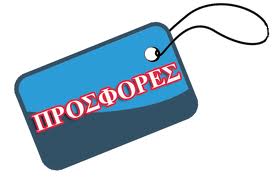 Use and Management of Insecticides, Acaricides, and Transgenic Crops
Use and Management of Insecticides, Acaricides, and Transgenic Crops
Use and Management of Insecticides, Acaricides, and Transgenic Crops
Author: John N. All, Michael F. Treacy
ISBN: 9780938522744
Pages: 156
Format: 21 Χ 27
Binding: Paperback
Pub. Year: 2006
"...very comprehensive...without any doubt this book will be greatly useful to plant protection specialists all over the world and therefore should be present in all agricultural libraries."
-- Journal of Plant Protection Research
This comprehensive resource examines agricultural pest management from all angles�magnifying practical field strategies for growers and their advisors, updating them on the latest protection techniques, and preventing needless crop loss as a result of outdated pest control procedures. Fundamental approaches to understanding and using insecticides, acaricides, and transgenic crops are presented. Numerous color photographs, diagrams, information-packed tables, glossary, and an index are included.
The handbook begins with a discussion of pesticide and transgenic crop regulations as well as principles for their proper and responsible use. Deployment in IPM and how insecticides, acaricides, and transgenic crops can be blended with other control tactics is discussed. Details on the chemistry, toxicology, and general uses of the primary insecticides and acaricides in use today are covered. The user learns to choose a course of action based on a physiological approach with a thorough discussion of key commercial molecules or pathogens within each pesticide class.
Also included is a comprehensive look at insecticidal transgenic crops. A discussion of the biochemical and physiological processes that lead to pest resistance provides a foundation for developing strategies to mitigate and manage resistance. The molecular biology and pharmacology of Cry gene constructs is discussed, as well as their use in crop development. Concerns over pest resistance to Bt and its favorable characteristics for evolving pest adaptation to Cry toxins are presented. The book also provides industry and user perspectives on mandated resistance management systems. One company�s proactive resistance management program is examined, illustrating the ongoing effort by IPM specialists, growers, industry, universities, and the federal government to protect the technology.
This handbook will be as useful to the professional as it will be to students. Extension specialists, government, and industry personnel dealing with regulation, research, sales and utilization and disposal of insecticides, acaricides, and transgenic crops will find this an excellent reference. The comparative information on common pesticide products and GMO plants will be of use to growers and other commodity producers. In addition, it can serve at a textbook for undergraduate courses in Insect Pest Management (IPM) as well as graduate courses in IPM or Utilization and Management of Pesticides and Transgenic Crops.
Contents
Contributing Authors, Preface and How to Use This Handbook; Deployment of Insecticides, Acaricides, and Transgenic Crops: Relevance of Pesticides in the Management of Arthropod Pests; Regulations Governing Insecticides, Acaricides, and Transgenic Crops: Implications of Federal and State Regulations for Users; Insecticides, Acaricides, and Transgenic Crops and Integrated Pest Management (IPM); Arthropod Sampling and Decision Making; Classification, Formulation, and Application of Insecticides/Acaricides: Physiological Targeting of Insecticides and Acaricides; Classification and Properties of Commercial Insecticides and Acaricides; Formulations Deployment of Insecticides/Acaricides; Management of Pest Resistance to Insecticides/Acaricides: Insecticide/Acaricide Resistance and Management Strategies; Insecticide Resistance Action Committee (IRAC); Safety of Insecticide/Acaricides and Transgenic Crops to Nontarget Species in the Environment: Environmental Safety of Insecticides and Acaricides; Mammalian Toxicology: Insecticides, Acaricides, and Transgenic Crops; Assessment of Environmental Toxicology to Arthropod Natural Enemies; Development, Utilization, and Management of Insecticidal Transgenic Crops: Bacillus thuringiensis Cry Proteins; Crop Development with Cry Gene Constructs; Market Development of Bollgard Cotton; YieldGard Transgenic Corn Insect Technologies; Grower Acceptance and Utilization of Transgenic Crops in IPM Programs; Status and Basis of Insect Resistance to Transgenic Bt Crops; Resistance Management Programs for Transgenic Crops; Abbreviations and Acronyms; References; Index






